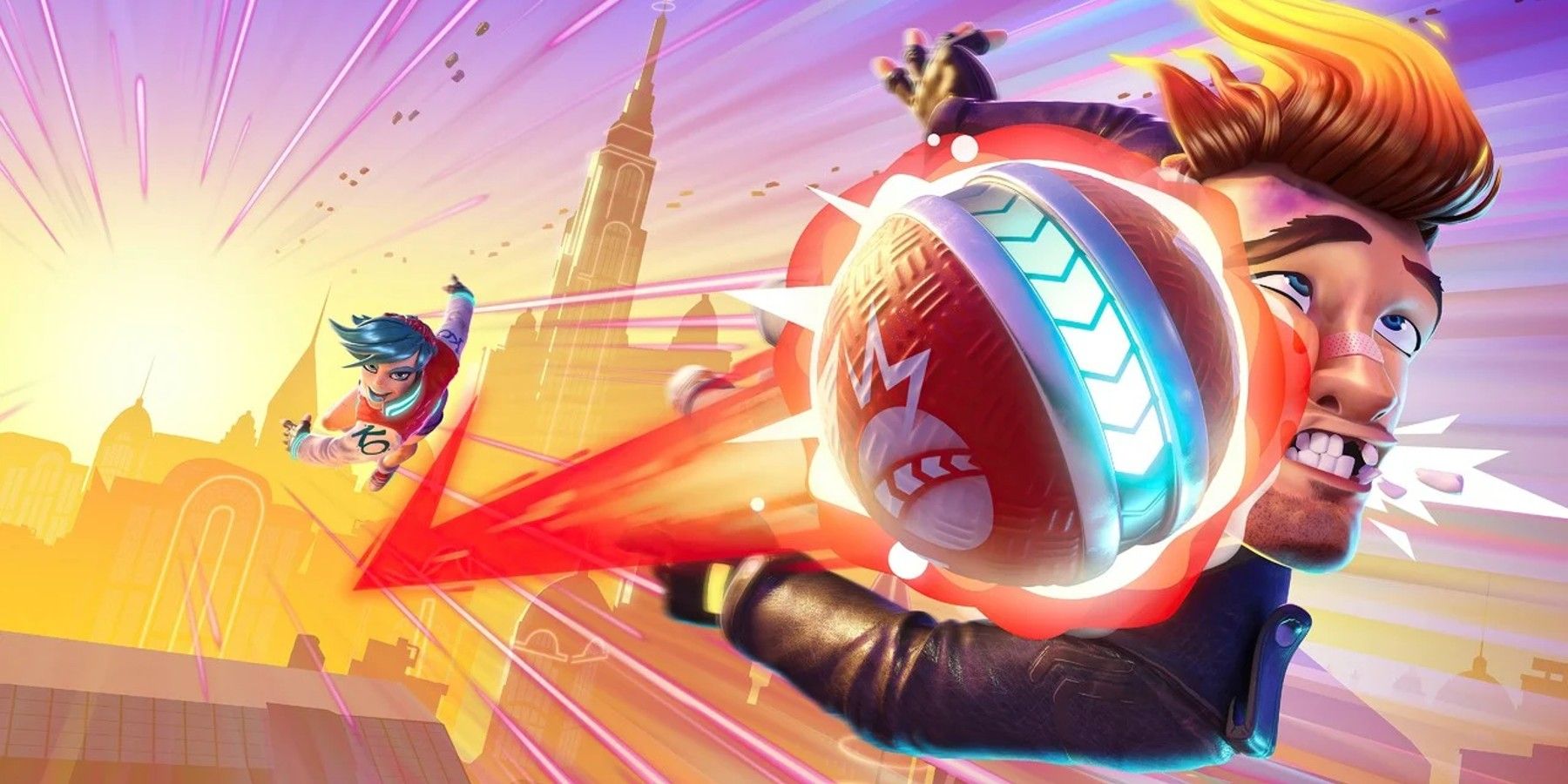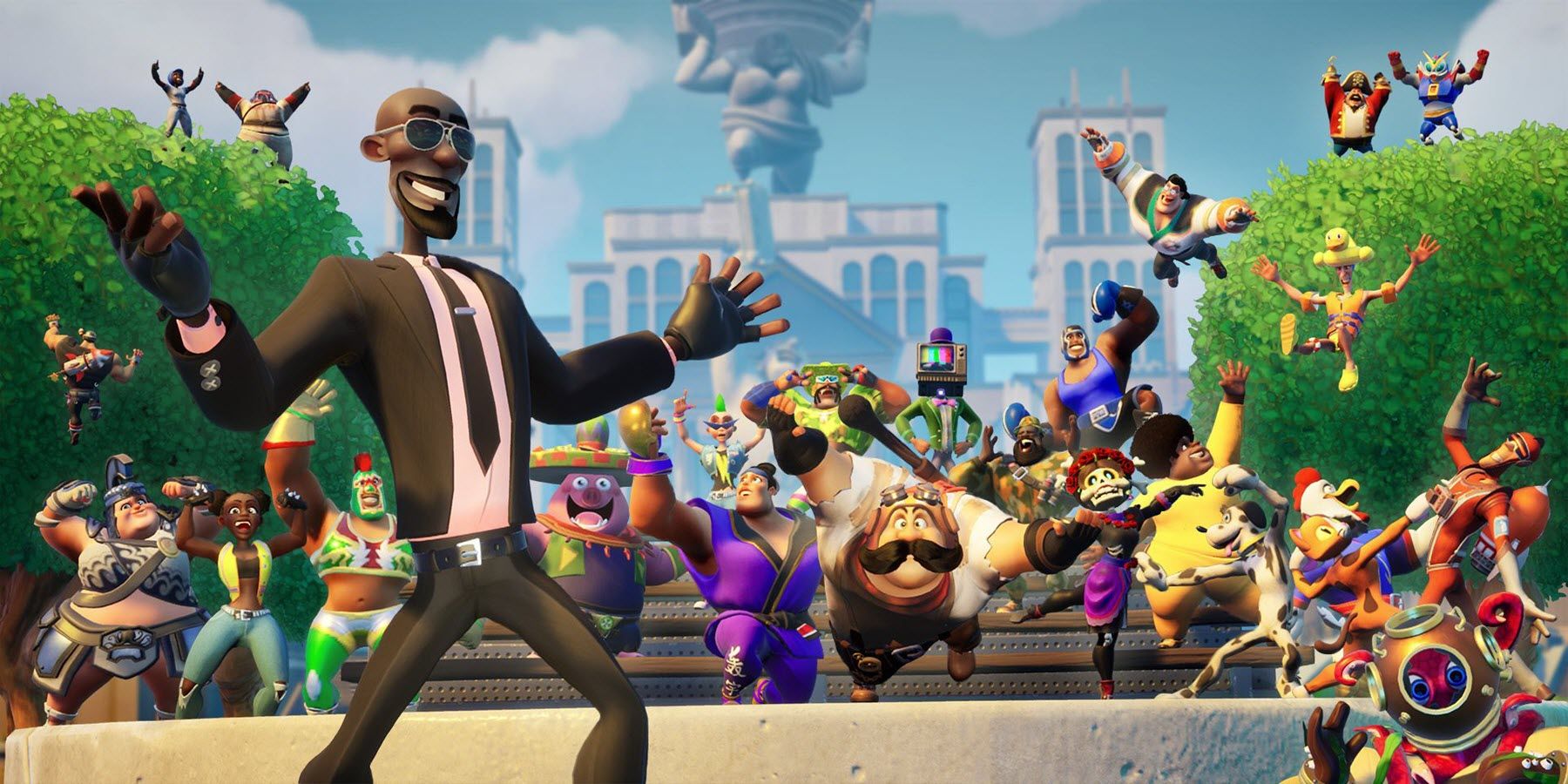Taking the unsteady groundwork of microtransactions and transforming it into a more consumer-friendly model, the live-service approach often sees a game release and the developers continue to work on it for at least a year or two, adding new content every few weeks to keep its player-base coming back. This steady stream of content is then used to entice players to purchase in-game cosmetics using real-world cash, therefore keeping the game profitable long after its initial release. But if Knockout City and Rumbleverse show the industry anything, it's that the live-service model isn't without its glaring flaws.
When Fortnite released in 2017, its unique approach to monetization and content almost single-handedly popularized the live-service model. In the years that have followed, a plethora of other free-to-play titles have tried to capture Fortnite's magic by just imitating its live-service approach, and time and time again it's been proven that it isn't enough to just imitate success. With Rumbleverse and Knockout City both announcing their server shutdowns just a few days ago, it once again shines a light on the shortcomings of the live-service model and proves that not every game needs to be a live-service title.
Knockout City and Rumbleverse Prove That Not Every Game Should Be Live-Service
By its very nature, the live-service approach implies that a game will be around for quite some time, with frequent content updates being an expectation. There are a number of downsides to the live-service approach right off the bat, all of which stem purely just from this expectation. The first issue is that this can often lead to a severe lack of content on launch, with developers hiding behind the expectation that fans are willing to wait for more content just because it's a live-service game. Even Nintendo and its recent sports titles are guilty of this.
This expectation can also lead to developers feeling trapped on their own projects. What may have started as just a fun little project may have been seized by a big publisher, and forced to become a live-service title, thus trapping its team into working solely on content for that game for the foreseeable future. What's worse is when that game also happens to be dead on arrival. It's often the sad case that a live-service game will release and it'll fail to attract a significant crowd within its first few weeks, but as the developer has promised more content, it's forced to spend time and resources creating new assets and modes that just a minuscule fraction of the gaming public will ever see.
In this modern age of gaming, where a slew of exciting new titles release daily, every title is fighting for its audience's attention, and unfortunately, that just doesn't fit with the live-service model. Knockout City and Rumbleverse were good games at their core, each with its own set of unique and engaging mechanics, and both had a fun visual style. Both games had a decent following, but that's still not enough to justify all the work behind the scenes, and now both games are shutting down their servers later this year, becoming completely unavailable aside from a handful of private servers on PC.
If Rumbleverse and Knockout City prove anything, it's that not every game needs to follow a live-service model. Both of these games were fun little time-sinks, but neither offered enough depth for even die-hard fans to drop hours into at a time. These titles should have simply been one-and-done releases, with a relatively low price tag that justifies the amount of content in the game at launch. If these games then turned out to be popular, then an expansion or DLC could be released, but that shouldn't have been an expectation. Publishers need to be more willing to let smaller games just be smaller games, and it's about time the live-service model was reserved for games that actually suit it.
Knockout City is available until June 6 on PC, PS4, PS5, Switch, Xbox One, and Xbox Series X/S.


